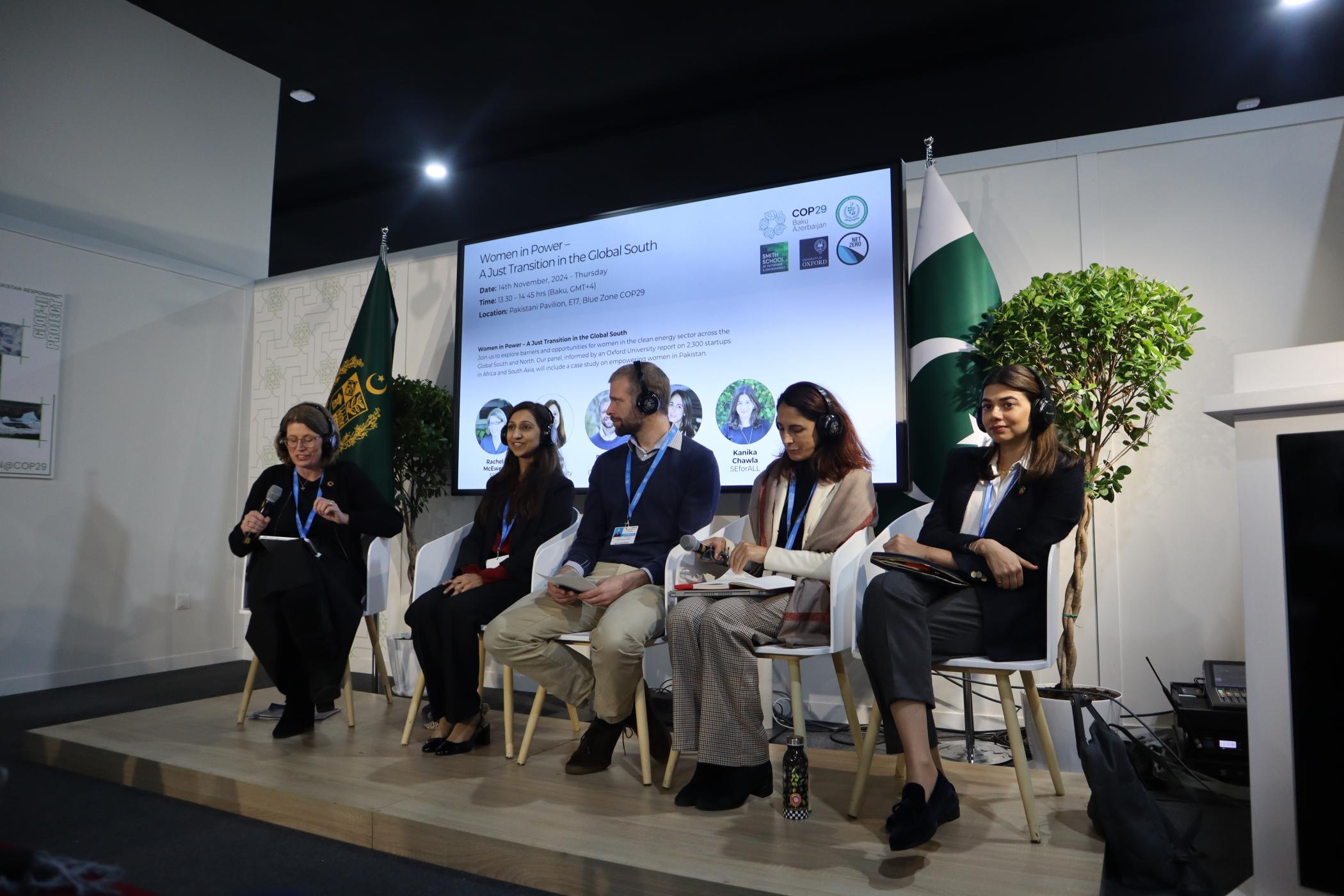Changing the world, one woman engineer at a time

For International Women’s Day 2025, I want to share my favourite experience from 2024 and one that exemplifies the type of real-life project that supports the goal of gender parity in a clean energy transition.
So let us rewind to COP29 in November, when I found myself chairing a panel in the Pakistan Pavillion, in the capital city of Azerbaijan, listening to an utterly inspiring case study about a large group of Pakistani women engineers who had been trained to install solar PV in their local communities. It was one of those ‘pinch me’ moments.
Bear with me, it takes a bit of explaining…
Two years ago, as part of a partnership between SSE and Oxford University, we agreed to fund some original research on the barriers and opportunities of the mass deployment of renewables in the ‘global south’. It is a problem, because the global north (or rich countries) are investing in renewable energy at a vast scale and there is a danger that, for many reasons, poorer countries are not able to benefit.
While SSE has no commercial interests beyond some carefully chosen markets in the developed world, it does matter to us that everyone benefits from renewable energy.
The latest research published includes a super powerful case study titled Empowering Women through Solar Energy: A Case Study from Pakistan - authored by Fatima Khushnud and Amnah Salman.
The Women in Energy (WiE) initiative supported 70 Pakastani women from lower-middle-class backgrounds to develop careers as solar panel installers.
It’s one of those win, win, win case studies. It’s good for communities having access to energy, it’s good for women and their families – and it’s good for tackling climate change too. The killer question was – if this can be done once, in one part of the world, why can we not replicate it everywhere?
I doubt you’ll be surprised to learn that the challenges faced by women involved in this initiative are not unique to Pakistan and are as relevant to women from Peterhead to Portarlington. Emanuela Pozzan from the ILO (International Labour Organisation) and a panelist that day, made the point that there are structural barriers that prevent women – in all parts of the world - from reaching their potential. Everything from the appeal of STEM subjects in schools to social norms about care giving.
So, the findings of this study call for focused policy reforms and robust support mechanisms to tackle these issues head-on. Policies should emphasise opportunities alongside flexible support systems—such as accessible childcare and caring more broadly—to create a more enabling environment for women. Strong leadership and targeted skills development, covering both technical and soft skills, are also essential to overcoming these barriers and advancing the industry.
And having listened to those on the panel, and hearing about the women in Pakistan, I came away believing that change is possible, and women will play a bigger role in building the clean and resilient energy systems of the future.
Community Insights series
Rachel McEwan is Chief Sustainability Officer - SSE plc.
The Smith School's Community Insights series features up-to-the-minute and incisive commentary from leading voices outside of academia, including from our Board, business fellows and partners.
